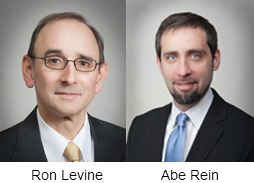

U.S. Supreme Court Agrees to Hear Post & Schell Client's First Amendment/Facebook Case
 On June 16, 2014, the Supreme Court of the United States (SCOTUS) agreed to hear arguments in Elonis vs. United States, a case that raises questions about what type of speech constitutes a potentially criminal “true threat” and thereby is not protected under the First Amendment.
On June 16, 2014, the Supreme Court of the United States (SCOTUS) agreed to hear arguments in Elonis vs. United States, a case that raises questions about what type of speech constitutes a potentially criminal “true threat” and thereby is not protected under the First Amendment.
The case involves Berks County, Pennsylvania resident Anthony Elonis, who was convicted of a variety of charges related to posts and responses he authored on Facebook that were directed at his estranged wife and police, among other parties. Elonis’ conviction was affirmed by the Third Circuit Court of Appeals in September 2013.
The question for SCOTUS will be whether the posts and statements made by Elonis on Facebook fall into a true-threat exception to the First Amendment, or whether an earlier decision by the Court in the 2003 case Virginia v. Black, provides Elonis free speech protection under the Constitution. Elonis argues that, in Black, SCOTUS established that a “subjective intent” to threaten must be established in order to show that speech indeed falls under the true-threat exception to the First Amendment. In its 2013 decision, the Third Circuit read Black to require no proof of the speaker’s subjective intent to threaten.
Post & Schell Internal Investigations & White Collar Practice Group Chair and Principal Ronald H. Levine and Associate Abraham J. Rein were court-appointed to represent Mr. Elonis in post-conviction hearings and sentencing before the District Court and on appeal to the Third Circuit. The University of Virginia School of Law’s Supreme Court Litigation Clinic, led by Vinson & Elkins Partner John P. Elwood, is working with Mr. Levine and Mr. Rein in this litigation before the Supreme Court.
“We are thrilled that the Supreme Court granted certiorari in this case,” said Mr. Rein. “The issue is a crucial one, because it goes to whether a person can be found criminally liable – put in prison, potentially for years – for simply saying something, without any inquiry into his or her state-of-mind. What’s more, it is an issue on which courts across the country disagree, so guidance from the Supreme Court is much needed.”
Addtional/Related Resources:
>> Download the Petition for a Writ of Certiorari
>> Download Reply Brief for the Petitioner
>> Click here for analysis of the case from The Legal Intelligencer

